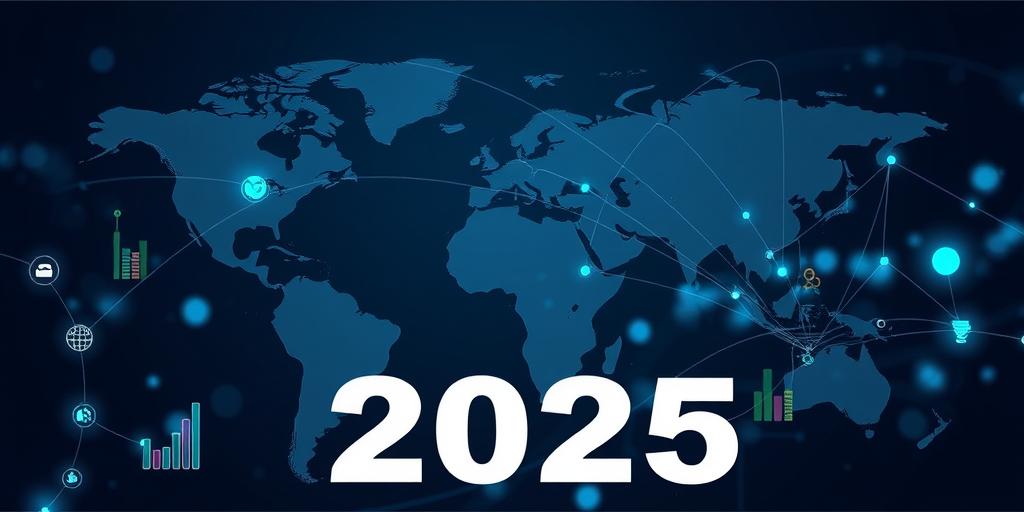The Role of International Organizations in the Global Economy (2025)
International organizations (IOs) play a crucial role in shaping the global economy. These entities, formed by agreements between countries, work to foster cooperation, stability, and growth on a global scale. As we move further into 2025, understanding their functions and impact becomes increasingly vital.
What are International Organizations?
International organizations are bodies established to facilitate cooperation between nations. They address a wide array of issues, including trade, finance, development, and security. These organizations can be global, regional, or functional, depending on their membership and scope.
Key Functions of International Organizations
- Setting Standards and Norms: IOs often establish standards and norms that govern international interactions. For example, the International Organization for Standardization (ISO) develops standards for various industries, ensuring quality and compatibility worldwide.
- Facilitating Negotiations and Agreements: They provide a platform for countries to negotiate and reach agreements on complex issues. The World Trade Organization (WTO) is a prime example, facilitating trade negotiations and resolving disputes among member countries.
- Providing Financial and Technical Assistance: Many IOs offer financial and technical support to developing countries. The World Bank and the International Monetary Fund (IMF) provide loans, grants, and technical assistance to help countries achieve economic development and stability.
- Monitoring and Surveillance: IOs monitor economic trends and policies, providing surveillance to ensure compliance with international agreements. The IMF, for instance, conducts regular assessments of member countries’ economic policies.
- Responding to Crises: They play a critical role in responding to global crises, such as financial meltdowns, pandemics, and humanitarian emergencies. These organizations coordinate international efforts and provide resources to mitigate the impact of crises.
Prominent International Organizations and Their Roles
- World Trade Organization (WTO): Focuses on reducing trade barriers and promoting fair trade practices. It plays a vital role in resolving trade disputes among member countries.
- International Monetary Fund (IMF): Works to stabilize the international monetary system and provides financial assistance to countries facing economic crises.
- World Bank: Provides loans and grants to developing countries to support infrastructure, education, health, and other development projects.
- United Nations (UN): Addresses a wide range of global issues, including economic development, social progress, and peace and security. Various UN agencies focus on specific areas, such as health (WHO) and development (UNDP).
- Organization for Economic Cooperation and Development (OECD): Promotes policies that foster prosperity, equality, opportunity, and well-being for all. It provides a forum for governments to work together and share experiences.
Impact on the Global Economy in 2025
In 2025, international organizations continue to shape the global economy in several key ways:
- Promoting Sustainable Development: IOs are increasingly focused on promoting sustainable development, addressing issues such as climate change, poverty, and inequality. They work to align economic growth with environmental protection and social inclusion.
- Enhancing Global Governance: They contribute to enhancing global governance by providing frameworks for international cooperation and decision-making. This is particularly important in addressing transnational challenges that require coordinated action.
- Supporting Digital Transformation: IOs are working to support digital transformation by promoting access to technology, developing digital infrastructure, and addressing issues such as cybersecurity and data privacy. They help countries leverage the benefits of digital technologies for economic development.
- Addressing Geopolitical Risks: They play a crucial role in addressing geopolitical risks, such as trade tensions, conflicts, and political instability. These organizations provide platforms for dialogue and negotiation, helping to prevent escalation and promote peaceful resolutions.
Challenges and Opportunities
Despite their importance, international organizations face several challenges:
- Limited Authority: IOs often have limited authority and rely on the cooperation of member states to implement their decisions.
- Bureaucracy and Inefficiency: They can be bureaucratic and inefficient, hindering their ability to respond quickly to emerging challenges.
- Lack of Accountability: There are concerns about the accountability and transparency of some international organizations.
However, there are also opportunities for IOs to enhance their effectiveness:
- Strengthening Governance: IOs can strengthen their governance structures to improve accountability, transparency, and efficiency.
- Enhancing Collaboration: They can enhance collaboration with other organizations, governments, and civil society to leverage expertise and resources.
- Embracing Innovation: IOs can embrace innovation and technology to improve their operations and better address global challenges.
Conclusion
International organizations are indispensable actors in the global economy. They set standards, facilitate negotiations, provide assistance, monitor trends, and respond to crises. As we navigate the complexities of the 21st century, the role of IOs in promoting cooperation, stability, and sustainable development will only become more critical. By addressing challenges and seizing opportunities, these organizations can continue to shape a more prosperous and equitable world for all.
